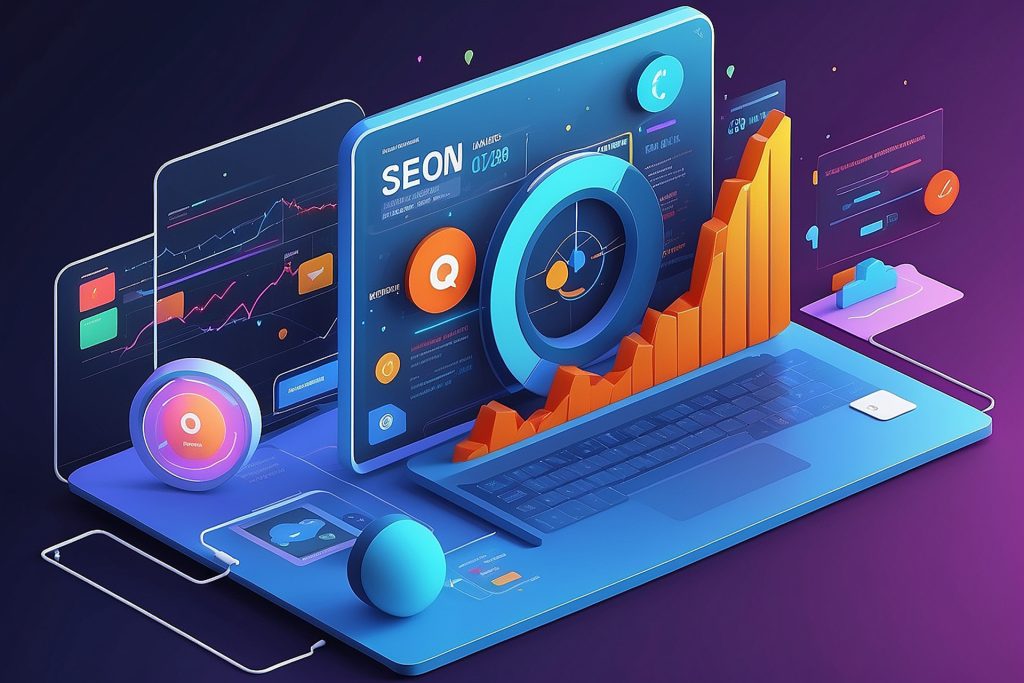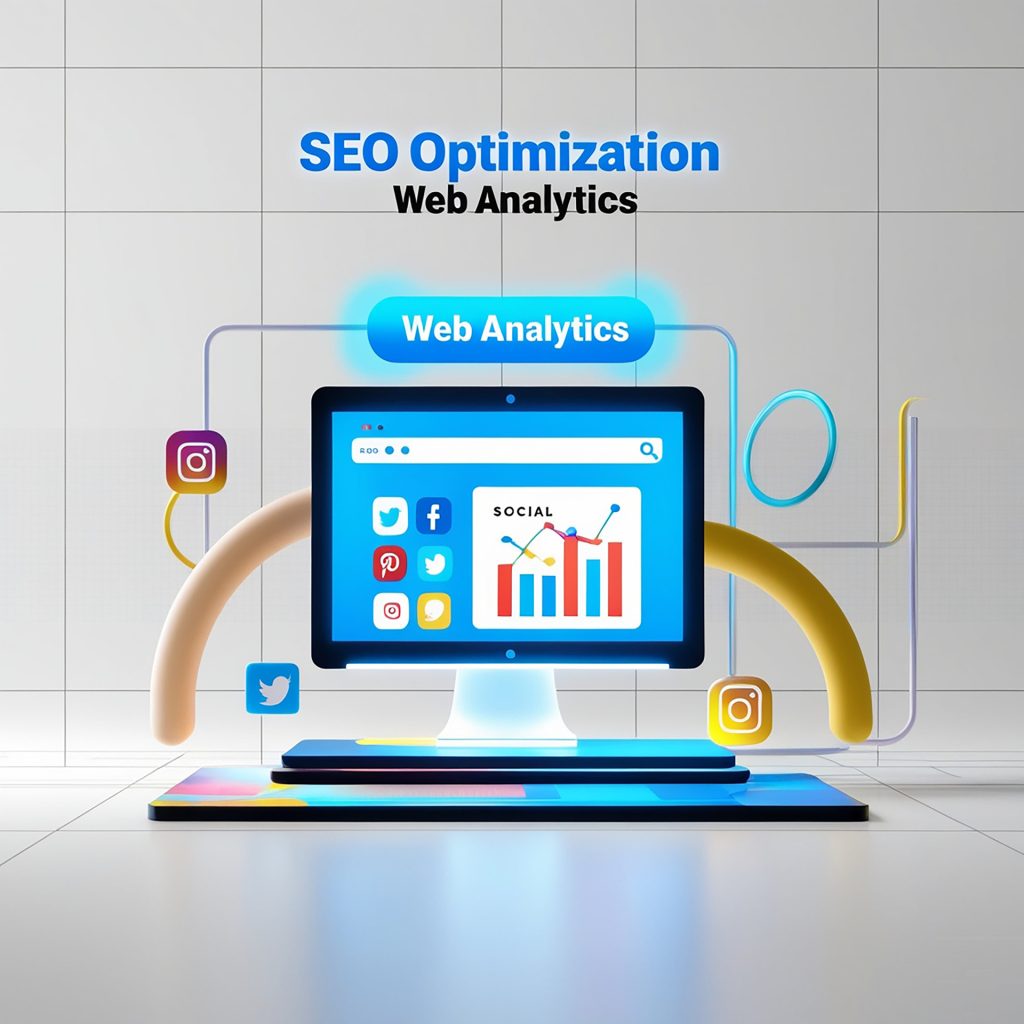Today, we’re going to explore how your marketing ecosystem affects your SEO performance. When we refer to a “marketing ecosystem,” we’re not just talking about the digital components like your website. We’re extending the scope to include third-party platforms, social media channels, and real-world interactions. By examining these elements collectively, we can uncover how they interplay to impact your search engine rankings and visibility.
Adapting to a New SEO Landscape: The Role of LLMs

Search is evolving at a rapid pace, largely due to advancements in artificial intelligence and machine learning. Large language models (LLMs), such as those used in ChatGPT, Google’s Gemini, and Bing AI, are not only influencing how search engines interpret content but are also becoming a tool for users to retrieve information. As people increasingly turn to LLMs for answers, even though they aren’t always intended for that purpose, it’s critical for businesses to adapt. We need to optimize our marketing ecosystems to align with how these models function and the data they prioritize.
LLMs often draw on large datasets from multiple sources—including social media, forums, and various content hubs. Therefore, to maintain strong SEO rankings, your marketing strategy needs to account for the signals that LLMs are using to identify relevant, authoritative, and trustworthy sources.
Expanding Beyond Your Website: The New SEO Ecosystem

Your website will always be foundational to your SEO efforts, but it’s essential to recognize that SEO is no longer just about optimizing on-site content. Many SEO professionals are experts in optimizing their website, ensuring their pages rank well in search engines. However, a significant portion of SEO influence now comes from external factors that feed into the overall picture of your brand’s authority and relevance.
Understanding the role of social media, third-party platforms, and real-world factors is crucial to creating a truly comprehensive SEO strategy. These additional channels can provide signals to search engines and LLMs that enhance your visibility and credibility, extending your reach far beyond your website.
Social Media’s Influence on SEO: More Than Just Engagement

Social media is a key component of your broader marketing ecosystem that directly impacts SEO. It serves multiple functions beyond customer engagement:
- Semantic Signals: Social platforms provide search engines and LLMs with data on how people talk about your brand, products, and services. The tone, sentiment, and associations users have with your brand all contribute to the semantic signals that AI models use to understand your business. Positive sentiment, in particular, helps position your brand as trustworthy and relevant.
- Authority Building: Social media interactions—shares, comments, and discussions—contribute to your brand’s online authority. The more people engage with your content across various platforms, the more likely LLMs and search algorithms are to see your brand as an authoritative source.
- User-Generated Content: LLMs often rely on user-generated content from platforms like Reddit and other forums to learn about various topics and human interactions. When your brand is positively mentioned in these contexts, it can serve as a strong signal to LLMs, further strengthening your online presence. Encouraging discussions about your brand or products on these platforms can help improve SEO by providing LLMs with additional human-level insights.
Leveraging Third-Party Platforms to Amplify SEO
Third-party platforms offer another significant opportunity for SEO growth. Whether it’s through partnerships, influencer collaborations, or appearing on trusted review sites, external validation from respected sources can have a profound impact on your search rankings.
- Partnerships and Collaborations: Particularly in local SEO, partnering with other businesses, influencers, or organizations within your community can enhance your credibility. These partnerships act as endorsements, signaling to both search engines and potential customers that your brand is trusted and respected within your industry or locale. Moreover, these partnerships can expand your reach to new audiences, further boosting your brand’s visibility.
- Barnacle SEO: Barnacle SEO refers to the strategy of attaching your brand to larger, more authoritative websites in a way that allows you to benefit from their established trust and visibility. For instance, if a high-ranking website includes your business in a “Top 10” list, that placement can drive significant traffic and improve your own SEO standing. This method is especially effective when targeting highly competitive search terms where it’s difficult to rank organically on your own.
- Directories and Listings: For local businesses, ensuring consistent and accurate listings across various directories is key. Search engines rely on this information to validate the legitimacy and accuracy of your business details. The more consistent your presence is across third-party sites, the more credible you appear, which can positively impact your rankings.
Real-World Experiences and Their Impact on SEO
The physical interactions customers have with your business can directly influence your digital visibility. Customer experiences, whether positive or negative, often translate into online reviews, social media discussions, and even blog posts, all of which feed into your SEO performance.
- Customer Reviews: Online reviews remain one of the most powerful indicators of your brand’s reputation. Negative reviews, especially if left unresolved, can harm your search rankings. Search engines increasingly factor in customer feedback as part of their ranking algorithms, making it crucial to deliver excellent service and resolve issues quickly.
- Community Engagement: Building a sense of community around your brand can create a lasting impact on both customer loyalty and SEO. Engaging with your local area or industry niche, whether through sponsorships, events, or other community-building activities, fosters positive word-of-mouth that can ripple into the digital space. For example, sponsoring local events or partnering with non-profits can lead to media coverage, backlinks, and increased local traffic, all of which contribute to better SEO.
- Direct Traffic from Offline Interactions: Real-world interactions also feed directly into your online traffic. Whether through events, sponsorships, or even casual interactions with your brand, people who become familiar with your business in the real world are likely to search for you online later. This direct traffic signals to search engines that your brand is well-known and respected, further enhancing your search visibility.
Real-World Examples of Successful Ecosystem Strategies
Let’s look at some practical examples of how this ecosystem approach works in real life:
- Nike’s Localized Campaigns: Nike launched a campaign in South America by collaborating with local graffiti artists to create limited-edition sneaker drops. This partnership with culturally significant artists allowed them to tap into local passions and increase community engagement. As a result, Nike saw a 22% increase in local traffic and a 32% rise in local sales. This case highlights how integrating real-world and online efforts can drive meaningful SEO results.
- Allagash Brewing’s Community Engagement: Allagash Brewing in Maine took a different approach by creating a co-op and recycling center within their community. This move fostered a strong local following, and today, they appear in seven of the top ten search results for “best Maine breweries.” Their community engagement efforts resulted in positive reviews, social media discussions, and recommendations on platforms like Reddit, significantly boosting their search visibility without heavily relying on their website alone.
Key Takeaways for Optimizing Your Marketing Ecosystem for SEO
To truly thrive in today’s SEO landscape, it’s essential to look beyond traditional on-page optimization and consider the broader context of your marketing ecosystem.
- Build a Community: Fostering a loyal community around your brand not only helps create advocates for your business but also strengthens your SEO by generating organic buzz and positive sentiment.
- Emphasize Authenticity: Authenticity resonates with customers and search engines alike. Create a brand story that people can connect with, and engage in real-world activities that reflect your brand’s values.
- Think Holistically: Your SEO strategy should integrate all aspects of your marketing ecosystem, including social media, third-party platforms, and real-world interactions. Every touchpoint is an opportunity to reinforce your brand’s authority and relevance in the eyes of both consumers and search engines.
By embracing a holistic approach and leveraging the full spectrum of your marketing ecosystem, you’ll not only improve your SEO but also build a stronger, more resilient brand that resonates with your audience across every platform.
